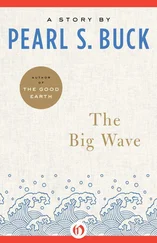Malli ended the story of his real family some months before the wave. “Mal, where are Sue and Tees now? Are they still in America?” Vik asked him one day, teasingly. “They’re dead,” came the reply. “They went to Africa and were eaten by lions.” “All of them? Lions don’t usually eat so many people at once,” said Vik, ever the naturalist. “Yes, all of them. I just got the message.” “Message from whom, Mal?” He didn’t reply.

COLOMBO, 2010
E ven the lizards have left, it seems. Those small green and brown creatures with their ancient heads and sticklike tails would be forever scuffling in this grass, alert to Vik stalking them with his fishing net. But nothing stirs in this wilted garden today. Nearly six years after the wave, and five years of other people living in it, my parents’ home is transformed. Empty now, it cringes with neglect. Leaves from the jak tree litter the back veranda. My mother never liked that jak tree. It towers in the middle of the garden, and she thought it far too big. She fretted that it would come crashing down in a strong wind one day and destroy the house.
I was seven when we moved to this house. On our first night here my parents had a pirith ceremony to bless our new home. For hours the monks hummed, and I sat distracted by the rows of little clay lamps that flickered around our pond. For me then, that pond was the most marvelous thing about our new home. It was indoors and had no roof over it. I was curious, how will it be when the rains come? This house changed over the years because changing the house was one of my mother’s passions. Dining rooms were enlarged, all glass and open to the garden, terrazzo floors were dug out and replaced with marble. And the pond disappeared. It was paved over because it overflowed during the monsoons, and Ma got tired of goldfish gasping on her new floors.
I’ve not stepped into this house since those early months after the wave, when I wandered through it, stunned. I’ve come back now eager for details of us, of my parents especially. I want to make our life in Sri Lanka real, less of a dream.
But this is quite unlike being in our home in London, where it feels as though we’ve just stepped out. There our life is affirmed, whereas in this strangeness it falters. Did my father really read his newspaper on this veranda, on that ebony armchair with the armrest that kept falling off? Did my boys wake in this bedroom at night disturbed by polecats pelting on the ceiling, and did I really hush them into sleep, my fingers combing their hair?
I turn on a light in the living room, even though it is daytime. The familiar feel of that confusing jumble of switches on the wall, and I perk up. I wash my hands in a bathroom upstairs and feel a lightness from the touch of the tap. Sunlight streams into that bathroom, and I sit on the toilet and let it scorch my back. The relief of habit. I don’t hear the tinkle of my mother’s gold bangles (“Aachchi’s bells,” Vik called that sound), but these walls have knowledge of it. My life coheres a little.
It is July. We’d be here every July for the summer holidays. The house gusted with my children’s chaos. My parents filled our days with big ceremonial meals. Pork curry blackened with roasted coconut on Monday, hoppers on Tuesday, biryani on Wednesday, and god forbid if Steve and I planned to go out to dinner with friends on other days. Ma would be glum and announce that someone she knows ate at the restaurant we were going to and had diarrhea, for a whole week would you believe. For my mother, no one could cook as well as she and her three sisters, and she wasn’t far wrong. During English winters, Steve craved her prawn curry, her signature dish. The fiery-red gravy was thickened with a paste made by grinding the half-cooked heads of the prawns, something she’d learned from her grandmother.
It’s four o’clock in the afternoon, and there are three triangles of sunlight trembling on the floor of this veranda, now as there were then. I can almost hear them out here. My mother and my aunts.
Together they were wayward, Ma and her three sisters. Mostly they laughed. Their laughter was a constant in my life, and in this house. As a child I was perturbed by just how much they laughed. I thought it unbecoming, other mothers and aunts didn’t get so hysterical surely? But always I felt safe within their merriment.
I could never resist being regaled by the stories that set them off. There was endless gossip. Someone emptied a flower vase, water and all, on the head of her husband’s mistress at the hairdresser’s. And stories from when they were young girls — my grandfather, a serious-minded civil servant, lined his four daughters up at the men’s barber’s and ordered severe short haircuts so they’d be unattractive and no boy would take a second look. Then there were descriptions of my grandparents’ later attempts to arrange suitable marriages for them. Michael, their squint-eyed gardener, would be the first to glimpse and pronounce on these proposed suitors. “Eeya, haamu, eeya” (Yikes, madam, yikes), he’d whisper through the window to Ma and her sisters as a hapless, oily-haired man stepped out of a Morris Minor.
And they laughed at us, when we were children. They thought it hilarious when I was distraught that time we holidayed in a dirty bungalow in Elephant Pass in the north of Sri Lanka. I was fourteen and wanted to be partying in Colombo, not stuck out in this remoteness with only an enormous lagoon and a train that went past once every night. “Come watch the train,” they’d say to me, chuckling, and I’d sob. I remember the mirth my cousin Krishan caused when he was a little boy learning to read — he struggled with the word right . “ ‘Every cat has a rigit to eat fish,’ ” he would read with aplomb, a cat food advertisement on the back of a Reader’s Digest . His mother and aunts would shriek with glee and press two rupees into his hand.
On an afternoon like today, Ma and my aunt Swyrie would be sitting out on this veranda, trying to outdo each other in not eating the chocolate cake on the table beside them because it would make them fat. Not looking fat mattered. I scolded them when they took it too far with that man selling bee’s honey in the Habarana jungles — on another vacation that was. This almost toothless man, with straggly long hair and clad only in a loincloth, spent his days collecting wild honey, holding a flare to the mouths of beehives high up on trees and smoking out the bees. He was sitting in a forest glade when we met him, squeezing out liquid from the honeycomb with both hands, his long fingernails stained and gnarled. Pleased with the prospect of a quick sale, he held forth on the medicinal properties of his honey. Ah, but is it fattening? asked my mother or aunt. He looked at the two of them, alien species with lipstick and large sunglasses, and unsure of the correct response replied in his singsong voice, “Those who are too fat lose weight, those who are thin gain.” “So what do you think will happen to us then?” they pestered him, giggling. Mortified by their ridiculous vanity, I quickly made them pay him and leave.
Now, in this house, I can bring my parents close. For six years I’ve pushed them and their death to the fringes of my heart. That’s all I could tolerate, my focus was on our boys and Steve. How hideous, that there should be a pecking order in my grief.
Often, in the far corner of this veranda, by the garden, there would be a seamstress bent over an ancient Singer sewing machine, tuk-a-tuk-a-tuk-a , I can hear her now. There was invariably something Ma urgently needed sewn. My mother was always elegant and paid careful attention to how she dressed. Except for the day before my wedding, when she was so busy and distracted that she rushed downstairs in the morning wearing a silk blouse and her usual sequined sandals but no trousers.
Читать дальше













